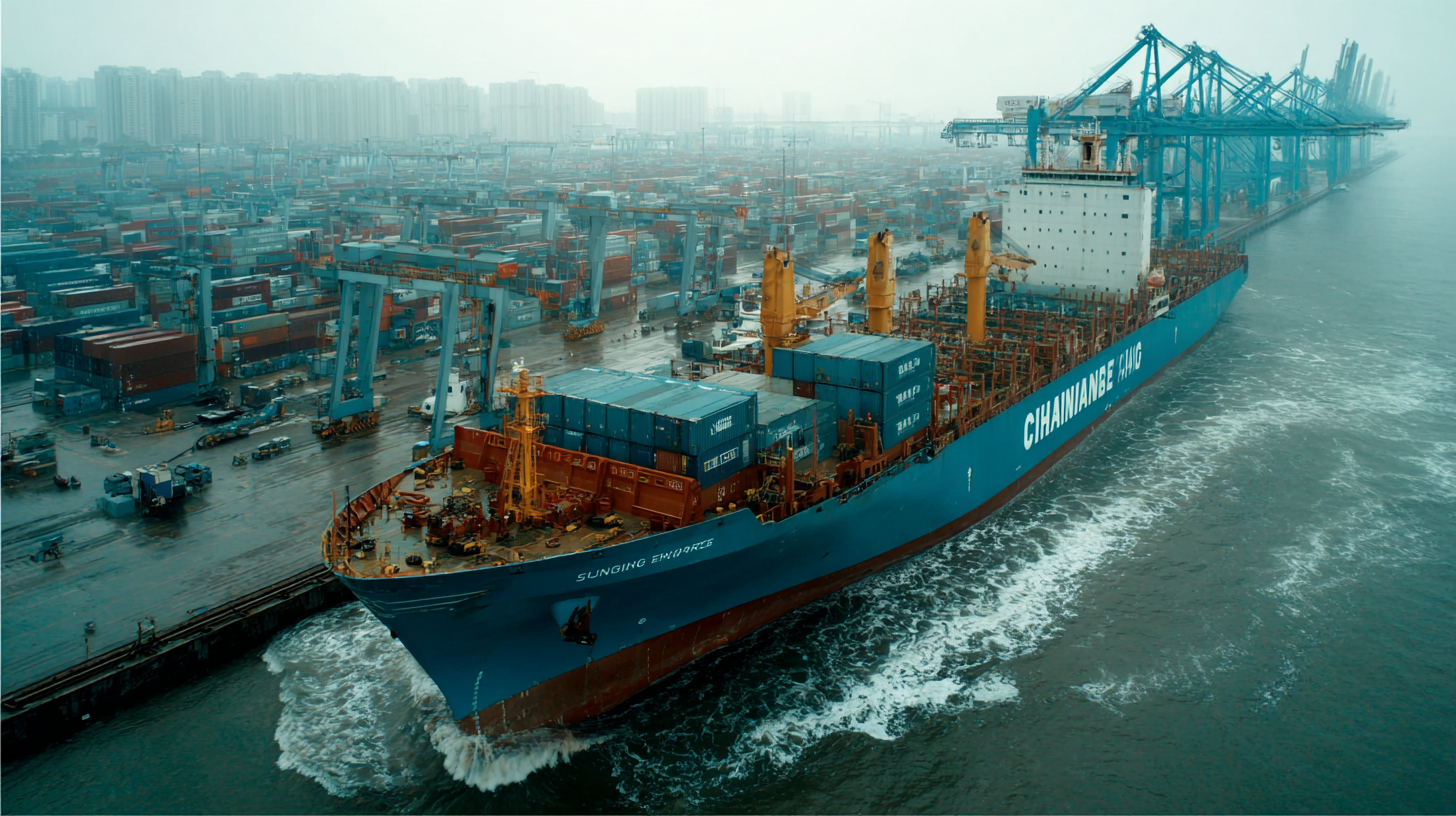 In an era where global commerce is continually evolving, identifying
top-performing suppliers becomes imperative for businesses aiming for
export excellence. According to a recent report by the
World Trade Organization, global merchandise trade volume is projected to grow by
8% in 2023, underlining the critical role that suppliers play in addressing
international demand. Among the leading players in
this landscape, China stands out as a
benchmark for supplier performance, leveraging innovative technologies and
robust logistics systems. The nation’s ability to adapt and thrive in a
competitive environment further cements its position as a preferred source for many
industries. As companies seek reliable partnerships to enhance their
export strategies, understanding what sets apart China’s best suppliers can provide
invaluable insights for stakeholders aiming to scale new heights in their export endeavors.
In an era where global commerce is continually evolving, identifying
top-performing suppliers becomes imperative for businesses aiming for
export excellence. According to a recent report by the
World Trade Organization, global merchandise trade volume is projected to grow by
8% in 2023, underlining the critical role that suppliers play in addressing
international demand. Among the leading players in
this landscape, China stands out as a
benchmark for supplier performance, leveraging innovative technologies and
robust logistics systems. The nation’s ability to adapt and thrive in a
competitive environment further cements its position as a preferred source for many
industries. As companies seek reliable partnerships to enhance their
export strategies, understanding what sets apart China’s best suppliers can provide
invaluable insights for stakeholders aiming to scale new heights in their export endeavors.
China is currently at the forefront of automotive technology innovation, particularly in the realms of new energy and smart connected vehicles. As a testament to its capabilities, recent reports highlight that Chinese suppliers are not only leading in technological advancements but also excelling in cost-effective supply chains. The expansion of local technology centers, such as those in major automotive hubs, exemplifies how Chinese companies leverage innovation to stay competitive globally.
Tips: Prioritize partnerships with local technology providers to enhance innovation. Chinese suppliers have benefited greatly from their ability to form alliances with leading tech firms, enabling them to integrate cutting-edge solutions into their offerings.
Moreover, data from recent reports indicate a surge in the adoption of smart cockpit technologies among domestic suppliers, showcasing a significant disruption in competitive dynamics within the industry. With the collaborative efforts of various stakeholders, including software innovators, Chinese manufacturers are steadily reshaping global market trends and establishing new benchmarks for excellence.
Tips: Keep an eye on evolving technologies in the automotive sector. Staying informed about advancements can help suppliers anticipate changes and identify opportunities for growth.
In the global marketplace, quality control stands as a pivotal factor that distinguishes leading suppliers from their competitors. According to a report by McKinsey & Company, 70% of firms in the manufacturing sector cite quality as their top priority, indicating its crucial role in achieving export excellence. In China, suppliers are increasingly adopting stringent quality management systems that adhere to international standards, such as ISO 9001, to ensure their products meet global consumer demands.
One key aspect of these quality control measures is the implementation of real-time monitoring across every stage of production. A study by the Boston Consulting Group suggests that companies utilizing advanced analytics in quality management can reduce defect rates by up to 30%. This proactive approach enables suppliers to identify potential issues before they escalate, ensuring that only the highest quality products are delivered for export. The adoption of these high standards not only enhances the reputation of suppliers but also contributes significantly to the overall growth of the export sector in China, setting a benchmark for excellence in quality assurance.

Building strategic partnerships is essential for success in today's competitive global market. As China's top suppliers enhance their export capabilities, they also recognize the value of fostering meaningful relationships overseas. According to a report by the International Trade Centre, companies that engage in collaborative partnerships report an average export growth rate of 15% higher than those that do not. By prioritizing these alliances, businesses can leverage shared resources and broaden their market reach, ultimately driving greater profitability.
Tip: Focus on understanding the cultural nuances and business practices of potential partners. Invest time in building trust and aligning goals, as these foundational elements are critical for long-term collaboration. Regular communication and transparency will help in solidifying the partnership.
Furthermore, as global supply chains become increasingly intricate, companies can benefit from technology and data sharing with their partners. Research by McKinsey indicates that firms that adopt digital collaboration tools can improve their operational efficiency by up to 30%. By embracing innovation and staying connected, businesses can anticipate market trends and adapt more swiftly to changes, ensuring that they remain competitive on the global stage.
Tip: Utilize strategic frameworks to assess potential partners. Consider their market reputation, reliability in delivery, and alignment with your business values to ensure a fruitful collaboration that fosters growth and innovation.
Effective supply chain management is crucial in today's global economy, especially for companies aiming to enhance their export capabilities. By streamlining processes, businesses can not only reduce operational costs but also improve their responsiveness to market demands. China has emerged as a leader in this domain, demonstrating how efficient supply chains can serve as a benchmark for export excellence. This efficiency stems from meticulous planning and integration of advanced technologies, enabling suppliers to meet international standards and customer expectations.
One of the key strategies in effective supply chain management is the adoption of technology-driven solutions. Automation and real-time data analytics allow suppliers to monitor and optimize their operations continually. For instance, utilizing AI and machine learning can predict demand fluctuations, ensuring that inventory levels are maintained at optimal capacity. Additionally, collaboration with logistics partners facilitates faster transportation and delivery times, ultimately enhancing customer satisfaction.
By learning from China’s successful suppliers, companies around the world can implement similar practices to streamline their processes, leading to greater efficiency and competitiveness in the global market.
In today's global economy, navigating the intricate web of international trade compliance is crucial for suppliers aiming to excel in their export operations. According to a recent report by the World Trade Organization (WTO), non-compliance with international regulations can cost companies up to 20% of their total export revenue. This statistic underscores the importance of understanding the complex legal frameworks that govern cross-border transactions. Implementing robust compliance programs not only mitigates risks but also enhances a company’s reputation in the international market.
Moreover, businesses must stay updated on shifting regulatory landscapes, especially with the emergence of trade agreements that impose new standards. A study from the International Trade Centre reveals that 62% of companies face challenges due to constantly evolving regulations, which can stall market entry efforts and hinder growth. By investing in compliance training and leveraging technology for tracking regulatory changes, suppliers can forge ahead in a competitive landscape while avoiding costly penalties and disruptions. Embracing a proactive approach to trade compliance will position businesses as leaders in export excellence, setting benchmarks for others in the industry.

TradeManager
Skype
VKontakte

